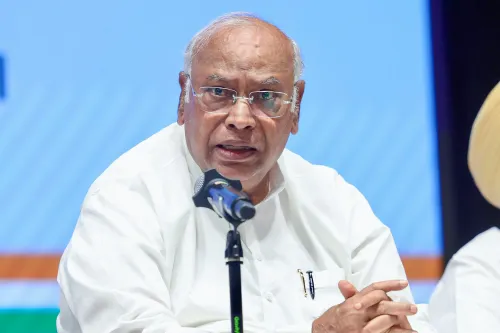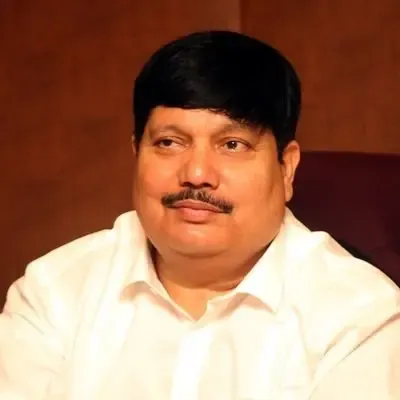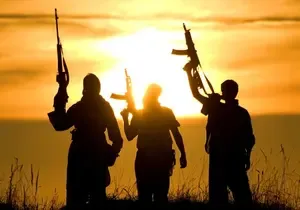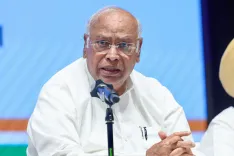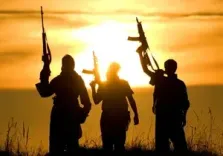Is Shehbaz Sharif Facing Embarrassment at the SCO Summit?
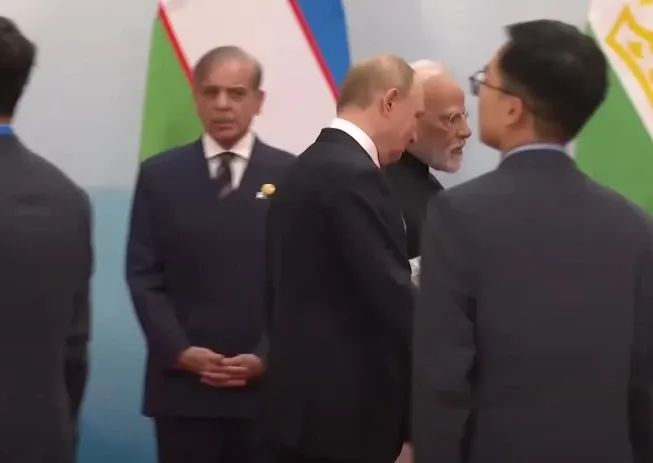
Synopsis
Key Takeaways
- Sharif's awkward moments at the SCO Summit highlight the challenges faced by Pakistan.
- Condemnation of the Pahalgam attack signifies a shift in regional narratives.
- Modi and Xi's collaboration against terrorism points to a united front.
- The summit reveals the complex dynamics of Pakistan's international relations.
- Ongoing terrorism issues remain a critical concern for both India and China.
New Delhi, Sep 1 (NationPress) The Prime Minister of Pakistan, Shehbaz Sharif, is facing a challenging experience at the ongoing Shanghai Cooperation Organisation (SCO) Summit taking place in Tianjin, a port city in China.
At the previous summit in 2022, Sharif encountered an awkward moment during a bilateral meeting with Russian President Vladimir Putin, struggling with his headphones. This time, he has been ridiculed online as he unexpectedly approached Putin to extend a handshake.
Following the Pahalgam attack and Operation Sindoor, Pakistan believed it had gained the upper hand. Field Marshal Asim Munir, the Army chief, had lunch with former President Donald Trump, who claimed to have halted the conflict with India. Misguided by support from the US and Turkey, Pakistan made several unfounded claims regarding Operation Sindoor, but the narrative at the SCO Summit unfolded differently.
In his address, Prime Minister Modi delivered a potent message, advocating for a unified approach against terrorism without double standards.
Additionally, Sharif faced further humiliation when the SCO condemned the Pahalgam attack in his presence. The declaration stated, "The Member States strongly condemned the terrorist attack in Pahalgam on 22 April 2025. They expressed their deepest sympathy and condolences to the families of the deceased and injured, asserting that those responsible must be brought to justice."
The most significant embarrassment for Sharif arose when Chinese President Xi Jinping expressed solidarity with India in combating cross-border terrorism.
During a discussion on Sunday, PM Modi and President Xi addressed the issue of cross-border terrorism, recognizing both India and China as victims of terrorism and emphasizing the need for collaboration.
“The prime minister articulated his thoughts clearly, highlighting that both nations have been affected by this scourge. He requested China’s support in addressing this critical issue,” shared Foreign Secretary Vikram Misri during a media briefing in Tianjin.
While India has long endured the consequences of terrorism from Pakistan, China too has faced challenges with its projects in Pakistan under threat from groups like the Tehreek-e-Taliban Pakistan (TTP). Consequently, China has been urging Pakistan to control these factions to safeguard its projects and personnel.
India has consistently pointed out Pakistan's involvement in numerous terrorist incidents on its soil. In the ongoing investigation into the Pahalgam attack, the National Investigation Agency (NIA) has successfully traced Islamabad's involvement.
The SCO declaration, which calls for justice against the perpetrators of the Pahalgam attack, serves as a significant rebuke to Pakistan, which has persistently denied any involvement.
During the summit, PM Modi remarked that India has suffered from terrorism for over four decades.
The recent Pahalgam incident starkly depicted the harsh reality of terrorism. The strong statements and condemnation regarding the attack were made in the presence of Sharif and Turkey's Recep Tayyip Erdogan.
It is noteworthy that Turkey was a staunch supporter of Pakistan during Operation Sindoor, which aimed to retaliate for the Pahalgam attack, successfully dismantling numerous terror launch pads and facilities within Pakistan and Pakistan-occupied Kashmir (PoK).

